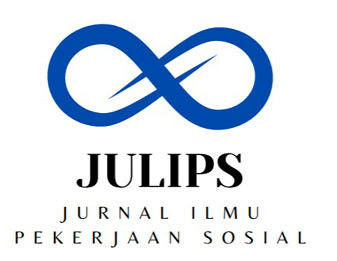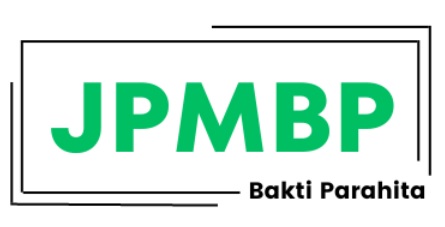Journals
-
World Conference on Health and Social Sciences
Join us for an enlightening exploration of the intersection between health and social sciences at Universitas Binawan. Under the theme of "Connecting People in Health and Social Sciences," this conference promises to be a platform for groundbreaking discussions, innovative ideas, and collaborative networking.Explore cutting-edge topics such as artificial intelligence (AI) in healthcare, the integration of nursing and midwifery into public health systems, and the impact of virtual reality (VR) on safety education. Whether you're a researcher, practitioner, educator, or enthusiast, WCHSS offers a unique opportunity to engage with global thought leaders and contribute to the advancement of these vital fields. -
Journal of Community Services for Health
Journal of Community Services for Health (JCSH) published by Faculty of Nursing and Midwifery, Universitas Binawan Jakarta. The aim of this journal publication is to disseminate the conceptual thoughts or ideas and research results that have been achieved in the area of community services and engagement in the health sector, which contributes to a better understanding all fields Community Service and Social. JCSH is published two times a year (March and September) with a double-blinded peer-review process.
-
Journal of Nursing and Midwifery Sciences
Journal title : Journal of Nursing and Midwifery Sciences (JNMS) Initials : JNMS Frequency : 2 issues per year Prefiks DOI : 10.54771 
Online ISSN : 2829-4572 Editor In Chief : Apriana Rahmawati 



Publisher : Faculty of Nursing and Midwifery Universitas Binawan Established since 2021, Journal of Nursing and Midwifery Sciences (JNMS) is a journal in the field of nursing and midwifery which is within the scope of the Faculty of Nursing and Midwifery Universitas Binawan. Faculty of Nursing and Midwifery Universitas Binawan has previously carried out capacity building by collaborating with the Insearch institution for lecturers and alumni in order to produce graduates who get the title of RN (Registered Nurse) and compete at national and international levels. In line with the goal of Universitas Binawan, which is to become a leading higher education center that is globally competitive and at the forefront in Indonesia, JNMS has a scope including Basic Biomedical in Nursing, Basic Nursing Science, Fundamental of Nursing, Pediatric Nursing Care, Mental Health Nursing, Midwifery - Maternity Care, Family Nursing, Aged Care Nursing, Community Nursing, Medical-Surgical Nursing, Trend and Issue in Nursing, Emergency Nursing and Complex Medical-Surgical Nursing.
-
Jurnal Manajemen & Bisnis Digital
JMBD (Jurnal Manajemen & Bisnis Digital) adalah jurnal yang diterbitkan oleh program studi Manajemen dan Bisnis Digital Universitas Binawan. Jurnal ini memuat hasil penelitian seputar penerapan ilmu manajemen & bisnis digital dalam bidang Manajemen Pemasaran, Manajemen Operasi/Produksi, Manajemen Keuangan, Manajemen SDM, Manajemen Strategik, Kewirausahaan, Pemasaran Digital, Platform Digital, Iklan Digital, Kewirausahaan Digital, Produk dan Layanan Digital, Start-up, Strategi Bisnis Digital, Teknologi dalam Bisnis, Revolusi Industri 4.0.
Memiliki nomor E-ISSN: 2986-3171 dan pertama kali terbit secara online sejak Desember 2022.
-
Jurnal Ilmu Pekerjaan Sosial

Jurnal Ilmu Pekerjaan Sosial (JULIPS) diterbitkan oleh Program Studi Kesejahteraan
Sosial Universitas Binawan yang bertujuan untuk mempublikasikan dan menyebarluaskan kajian pustaka, hasil penelitian dan intervensi pekerjaan sosial / kesejahteraan sosial di tingkat nasional maupun internasional. -
Jurnal Fisioterapi Binawan
[ENG] The Binawan Physiotherapy Journal is a scientific journal published by the Physiotherapy Program of Binawan University, covering a multidisciplinary scope related to the field of Physiotherapy.
The editorial team will conduct a peer-review process for all submitted manuscripts, whether they are from physiotherapy students or faculty members. The Physiotherapy Journal is published biannually (in June and December).
[IND] Jurnal Fisioterapi Binawan merupakan Jurnal ilmiah yang diterbitkan oleh Program Studi Prodi Fisioterapi Universitas Binawan dengan lingkup multidisipliner terkait ilmu Fisioterapi.
Tim editor akan menjalankan proses peer-review terhadap seluruh naskah yang masuk baik dari mahasiswa dan dosen fisioterapi. Jurnal Fisioterapi dipublikasikan secara berkala dua kali setahun (Juni dan Desember).
-
Jurnal Kesehatan Mental Indonesia
Jurnal Kesehatan Mental Indonesia (JKMI) adalah jurnal yang diterbitkan oleh program studi Psikologi Universitas Binawan. Jurnal ini memuat hasil penelitian seputar penerapan ilmu psikologi dalam bidang klinis, sosial, industri organisasi, maupun pendidikan yang berkaitan dengan upaya menjaga kesehatan mental masyarakat.
Jurnal ini telah memiliki E-ISSN: 2963-1904
-
Jurnal Pangan Kesehatan dan Gizi Universitas Binawan
Jurnal Pangan Kesehatan dan Gizi (JAKAGI) merupakan media ilmiah yang diterbitkan oleh Program Studi Gizi, Fakultas Ilmu Kesehatan dan Teknologi, Universitas Binawan. Jurnal ini menerbitkan artikel-artikel pada lingkup ilmu gizi, pangan, dan kesehatan dengan aspek diantaranya gizi klinik, gizi masyarakat, manajemen penyelenggaraan makanan, pangan fungsional, aplikasi sistem informasi bidang pangan, gizi dan kesehatan. Tim editor akan menjalankan proses peer-review terhadap seluruh naskah yang masuk, dan jurnal yang diterima akan di publikasikan secara berkala dua kali setahun (Juni dan Desember).
Ketua Editor: Dr. Ratnayani, M.Biomed
-
Binawan Student Journal
BSJ merupakan jurnal yang mempublikasikan artikel-artikel ilmiah hasil penelitian mahasiswa Universitas Binawan. BSJ dikategorikan sebagai jurnal yang bersifat umum dan memuat berbagai macam topik permasalahan baik di bidang Kesehatan, Sosial, Sains ataupun Teknologi. Dengan adanya BSJ ini, kami berharap dapat dijadikan sebagai referensi bagi seluruh civitas akademik universitas khususnya mahasiswa Universitas Binawan. Selain itu, kami juga berharap mahasiswa Universitas Binawan dapat berkontribusi aktif menulis artikel ilmiah sehingga dapat memacu keberlajutan penerbitan dan meningkatkan kualitas BSJ Universitas Binawan.
-
Jurnal Pengabdian Masyarakat Bakti Parahita

Jurnal Pengabdian Masyarakat Bakti Parahita (JPM Bakti Parahita) merupakan Jurnal yang menerbitkan manuskrip dari hasil kegiatan pengabdian kepada masyarakat. JPM Bakti Parahita mempublikasikan manuskrip pengabdian masyarakat di bidang kesehatan, sains dan teknologi serta sosial humaniora.
JPM Bakti Parahita sudah memiliki ISSN, p-ISSN-2747-2094 dan e-ISSN 2963-637X. Jurnal ini terbit dua kali dalam satu tahun di bulan Juni dan Desember. JPM Bakti Parahita diterbitkan oleh Direktorat Penelitian, Pengabdian Masyarakat dan Kerjasama Universitas Binawan
Beberapa catatan penting bagi penulis:
- Pengabdian Masyarakat dengan metode edukasi wajib menyertakan bukti hasil pengabdian berupa pre-test dan post-test
- Pengabdian Masyarakat dengan metode pelatihan wajib menyertakan bukti hasil pengabdian Masyarakat berupa foto produk atau link video produk
- Penulis wajib menggunakan aplikasi pada penulisan sitasi serta daftar pustaka (Mendeley dan semisalnya).
- Batas plagiasi yang diterima sebanyak 30%.
- Menampilkan bukti pengabdian masyarakat pada manuskrip (Foto dan lainnya).
- Penulis memberikan nomor WhatsApp yang dapat dihubungi oleh editor pada manuskrip.
-
Binawan Journal of Nursing
Binawan Journal of Nursing adalah Media Jurnal Ilmiah bidang Keperawatan yang dikelola Program Studi Keperawatan, Universitas Binawan.












